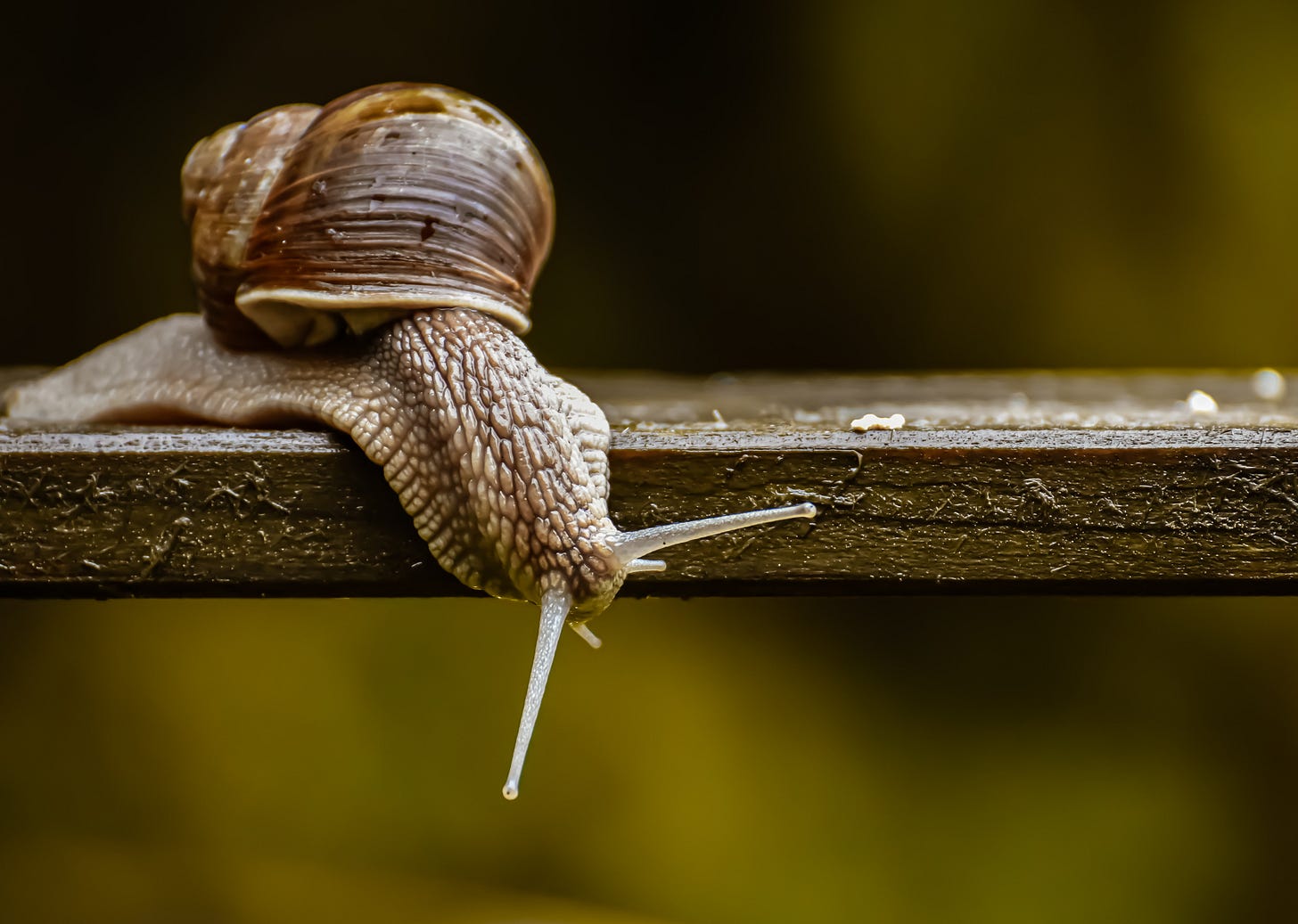Go slow to go fast
Or maybe just go slow, period.
Apologies for the late post! I was traveling last week and thought I could pull something together while I was on the road, but that proved overly ambitious. Instead, I did a lot of driving and a lot of thinking about the subject of this week’s newsletter: the idea that slowing down the research process might actually speed it up.
“Go slow to go fast” is an adage I learned in a former life as a ski patroller, treating injured riders and doing the delicate work of avalanche control (basically, blowing up snow to intentionally trigger slides). The idea is that, in high-stakes situations where it’s tempting to rush, moving fast can actually lead to mistakes that slow you down big time. For instance, if you hastily treat a patient’s broken wrist without first completing a full exam, you might miss a far more serious head injury. And if you charge into the scene of an accident before checking that it’s safe, you too could become a victim, and then you aren’t really helping anyone, are you?
Better to take a deep breath and slow down.

These days, “go slow to go fast” is something I mutter to myself when I’m rushing in the kitchen or frantically banging out emails, risking sliced fingers and embarrassing typos. But lately, I’ve been thinking about it in relation to book research too.
I am so excited about this project—and so pressed for time—that I have been hoovering down research material as fast as I can. I have been dutifully taking notes in Scrivener. But if I’m honest, I do it as quickly as possible so I can move on to the next thing. The result, sadly, is that what I read often goes in one eye and out the other, making me feel like I’ve wasted what precious time I have. Worst of all, it has left me adrift in a sea of information and ideas, struggling to stay the course. My motto has apparently been, “go fast to go maddeningly slow.”
It appears I am not alone in the research quagmire. In The Craft of Research, the authors explain that “as you get deeper into your project, you may experience a moment when everything seems to run together into a hopeless muddle.” Yep, sounds about right. The problem, they explain, is consuming information faster than you can make sense of it. And the solution is—you guessed it!—go slow to go fast.
The authors provide plenty of tips that, together, constitute the research equivalent of the “slow food” movement, such as:
Read sources twice (once for comprehension and once for analysis)
Sort material by topic and theme (not just source)
Summarize information in your own words (note that writing by hand can force concision and increase retention)
Take the time to reflect on the material and its relevance to your work before moving on (be sure to indicate which words and ideas are original)
(For more on these sorts of practices, I highly recommend Jaime Green’s excellent class, From Research to Draft.)
Still, knowing all this, I confess that it’s been hard for me to accept slowing down in my research, because I am a human being bound by the constraints of space-time, and working slower means I will ultimately read less. And deep down, I fear that reading less will make my book worse.
But then, I got to thinking about bread. Again.
With bread, there is a trade-off between time and effort. Developing the gluten that gives bread its structure and rise requires either a short period of vigorous kneading or a long period of resting and proofing. As a baker, I usually opt for the slow method, partly because it’s easier but also because a long proof is what gives good bread its tangy, complex flavor.
Perhaps writing a book is the same. By powering through research, maybe I’m trying to muscle something into existence that would eventually take shape on its own, and be richer for it. Maybe I’m crowding out my own insights—and closing myself off to serendipity—by frantically gulping down other people’s ideas. Maybe the book just needs time and I just need to go slow…to go slow.
All of this was on my mind last week as I drove hundreds of miles around the middle of the country, talking to folks about grass and letting the jiggly dough of my next chapter bubble and ferment inside my mind. I’m home now, adding my interview transcripts and field notes to my overflowing library of historical and scientific documents. Part of my brain keeps screaming, read more, do more. I just have to keep taking those deep breaths and reminding myself: Go. Slow.


This is so good Julia! Also, “the jiggly dough of my next chapter”... *chef’s kiss*
Yes! Hard to put in practice but so important.